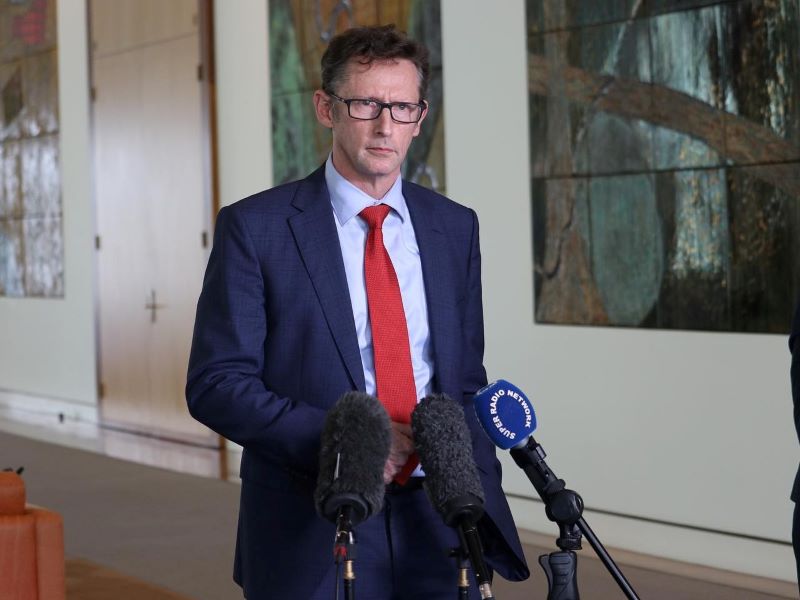Australia will set broad limits on anticompetitive behaviour by big tech companies under a proposed framework that could impose penalties of up to $50 million, more than two years after the competition watchdog first called for the regime.
Assistant Treasurer Stephen Jones outlined the framework in a speech on Monday, which would include service-specific obligations starting with app marketplaces and advertising technology services.
Large tech companies – like Google, Apple and Meta – could be designated by the minister under the new scheme, but only after the Australian Competition and Consumer Commission had conducted a service-specific investigation. This is similar in design to the United Kingdom’s regime.
Consultations have begun on a proposals paper, which would inform the design of exposure draft legislation – which would itself then undergo a round of consultation.

In addition to fines of up to $50 million, alternative penalties include further fines equivalent to 30 per cent of a company’s turnover during the noncompliant period, or three times the value of the benefit obtained through the anticompetitive conduct.
Included among the proposed obligations that would govern company behaviour are restrictions on self-preferencing a platform’s products or services over competitors, or tying the use of one product or service to others that the company provides.
It would also require designated tech companies to remove barriers to switching to a competitor’s service, ensure fair treatment of business users, and provide greater transparency around policies, processes and data.
The government will focus on service specific obligations for app marketplaces – like the Apple App Store and Google Play Store, which have already faced legal challenges for anticompetitive behaviour – and advertising technology services.
Current competition laws are not fit “for the fast-moving, complex digital economy” given the need for years-long investigations and ineffective remedies, according to a Treasury fact sheet.
In his speech to The McKell Institute, Mr Jones said that effective competition creates an incentive for companies to lower their prices and improve the quality of their products.
“However, the dominant platforms can charge higher costs, reduce choice, and use sneaky tactics to lock consumers into using certain products. Innovation outside of the established players becomes almost impossible,” Mr Jones will say.
Mr Jones said the regime would “provide flexibility to tailor the rules for the diversity and pace of change within the digital economy”.
The ACCC called for new rules that prohibit anti-competitive conduct up front, known as ex-ante regulation, in its fifth interim report under its Digital Platform Services inquiry handed to the Treasury in September 2022.
The regime was agreed to in principle by the Albanese government in its response to the inquiry in December 2023.
The European Union’s Digital Market’s Act was the first to impose ex-ante obligations on gatekeeper digital services, with similar regimes in place in the United Kingdom, Japan, and India.
Closing his speech, Mr Jones said the framework was a means of facilitating “more choice, lower prices and fairer outcomes for consumers”.
“And it will level the playing field for small businesses and give them a chance to compete with good, innovative ideas.”
Consultation will close on February 14, 2025.
Do you know more? Contact James Riley via Email.

